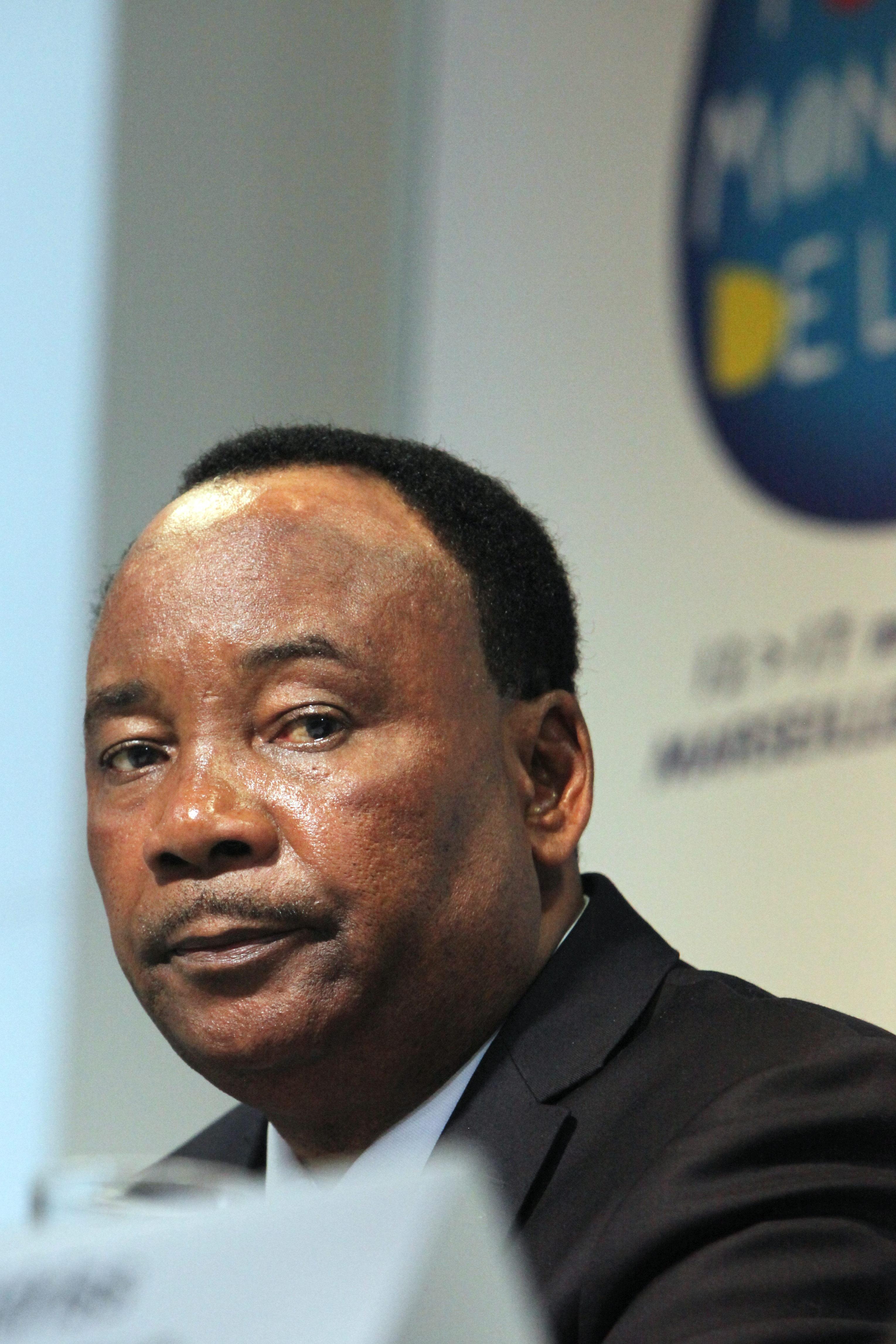AU will break norms & welcome Egypt back after “˜coup’ – By Solomon A. Dersso

 It is official, the referee and kingmaker in Egypt’s post-Mubarak upheavals, the Egyptian army, now has one of its own as the country’s new president. Former army chief Abdel Fatah el-Sisi has overwhelmingly won the election held on May 26th”‘28th, gaining around 93% of the votes cast.
It is official, the referee and kingmaker in Egypt’s post-Mubarak upheavals, the Egyptian army, now has one of its own as the country’s new president. Former army chief Abdel Fatah el-Sisi has overwhelmingly won the election held on May 26th”‘28th, gaining around 93% of the votes cast.
Riding on massive protests that erupted in Egypt on 30th June 2013, the military took the decisive step of removing Egypt’s first democratically elected President Mohamed Morsi on 3rd July 2013. Although many in the international community did not condemn it, neither were they fulsome in their welcome of Morsi’s ouster to the international table. Indeed, Egypt’s international relations, including with its major ally the US, soured following Morsi’s removal and the suspension of Egypt’s 2012 constitution.
Most notable in terms of international action was the African Union’s (AU) decision on 5th July 2013 to suspend Egypt’s membership. The AU treated the ousting of Morsi as unconstitutional change of government, prohibited in its various instruments (to which Egypt has subscribed). Under the Lome Declaration of 2000, unconstitutional change of government is defined as i) military coup d‘état against a democratically elected government; ii) intervention by mercenaries to replace a democratically elected government; iii) replacement of a democratically elected Governments by armed dissident groups and rebel movements; and iv) the refusal by an incumbent government to relinquish power to the winning party after free, fair and regular elections.
Following its decision to suspend Egypt, the AU did not specify which one of the four forms of unconstitutional change listed under the Lome Declaration applies to this particular case. Despite this omission and the reluctance of AU officials at the time to call it a coup, it was generally considered that the overthrow of Morsi – although backed by huge popular support – was one of these.
In light of the above, the presidential election is therefore of significant consequence to the AU – perhaps more so than for others in the international community. Given that this election represents the last major component of the remaining transitional processes, the question the AU now faces is whether it should welcome Egypt back into the fold. Unlike the case of Madagascar, which was reinstated at the January 2014 AU summit after its successful presidential election in December 2013, Egypt poses a more serious challenge.
Many critics found the election of El Sisi distinctly troubling. In their view, “˜El Sis’ will take the election as a licence to continue with draconian steps begun during the transitional period, including the bloody crackdown on the Muslim Brotherhood and its supporters, the outlawing of the group, the mass arrest of protesters, critics and journalists and the closing down of political space for opposition dissent. As one observer aptly summed it up; “the election – extended into a third day of voting amid low turnout “” will undoubtedly formalize an authoritarian regime that is a military dictatorship in all but name.”
But it is not for these reasons that critics in the AU find El Sisi’s election particularly troubling. El Sisi’s electoral victory also strikes a major blow to AU’s norm banning unconstitutional changes of government.
This norm prevents perpetrators of unconstitutional changes of government from participating in elections held in order to restore a constitutional order – seeking to close the door that enables an individual to legitimize the unconstitutional seizure of power through elections. As noted above, given that Egypt’s president-elect played the decisive part in the removal of Morsi, the application of this rule would logically lead to Egypt’s continuing suspension
Given the strong probability that El Sisi will stay in power for more than one term, upholding Egypt’s suspension would mean that Egypt would have to wait until such unknown time when he is replaced (in a method acceptable under AU norms).
On the other hand, lifting the suspension of Egypt upon the conclusion of the election (without regard to El Sisi’s victory) would mean going against an established norm.
Some argue that the AU’s readmission of Egypt would not be so serious a breach. They cite as evidence the AU’s decision that lifted Mauritania’s suspension from membership after the coup leader, who is now the Chairperson of the AU Assembly, was elected as the country’s president in 2008. But since the rule banning the legitimization of unconstitutional seizure of power through election became legally binding only in 2010, this was a different situation.
While there is little space for ambiguity on the binding applicability of the rule to the case of Egypt, it is nevertheless clear that on Egypt, the AU seems to be between a rock and a hard place. Either it has to lift the sanctions on Egypt and have a dented credibility or uphold its principle and create the de facto exclusion of Egypt for an indefinite period of time.
Should the AU opt for the first option, then it is unlikely that it will be able to avoid being considered as having accepted the legitimization of unconstitutional seizure of power through election and hence failing to uphold its principle. It will have lost significant moral and political credibility for its future application of this rule.
Given the unwelcome consequences of either option, the choice must revolve around selecting the better of two evils. In this particular case, it turns on the question of which one can serve the object and purpose of the AU norm on UCG and the application of the sanctions regime best.
If the AU opts for the first option – giving more weight to the fulfilment of other conditions of the norm on UCG and on account of the need to avoid the indefinite suspension of Egypt – it is imperative that it explicitly states that this does not in any way set a precedent for any future cases. Without such an explicit statement, the rule banning the legitimization of unconstitutional seizure of power through elections will have no chance of being applied and respected in future cases.
Unlike its stand in July 2013, when it broke ranks from the rest of the international community, this time around the AU seems disposed to join others in the international community in giving precedence to pragmatism over principles. All the indications are that there is very little appetite within the AU to keep Egypt’s suspension.
There are a number of AU member states that are resigned to the idea of lifting Egypt’s suspension. As far back as January 2014, the AU’s High-level Panel on Egypt expressed its hope that, with the forthcoming national elections, the transition process in Egypt will be completed. For its part, the Peace and Security Council (the body that suspended Egypt) stated that it “looks forward to the early completion of the process to restore constitutional order” and expressed “its readiness to take the required decisions based on a report to be submitted by the High Level Panel [on Egypt].”
While there is no unified position in the AU Commission, there is little chance that those who advocate for upholding the AU norm would win the battle. This became clear when the Commission sent election monitors to Egypt. This was a subtle statement recognizing and legitimizing the candidacy of El Sis.
Both the US and the EU are bent on giving Egypt’s vote a clean bill of health. As a recent article in the Guardian put it “Washington, London and Brussels are already finalising carefully-crafted statements about the will of the Egyptian people and pressing forward with the promised “˜democratic transition’. There will be euphemistic calls for “˜inclusiveness’ and widening the country’s “˜political space’. There may even be some critical words about justice and human rights. But there will be congratulations for Egypt’s new strongman.”
Little different is expected from Addis Ababa. While the views of those opposing the lifting of Egypt’s suspension will be reflected in strong demands for inclusivity and deepening of democratic processes, and expression of serious concern on violent crack down on opposition and protestors, ultimately a decision will be made lifting Egypt’s suspension. To make Egypt’s return to the AU complete, El Sisi will be welcomed by the Chairperson of the AU Assembly, Mohamed Ould Abdel Aziz, the current President of Mauritania – elected president after overthrowing a democratically elected government in 2008!
Plus í§a change…
Solomon A. Dersso is Senior Researcher on the Peace and Security Council Report Programme for Institute for Security Studies.




